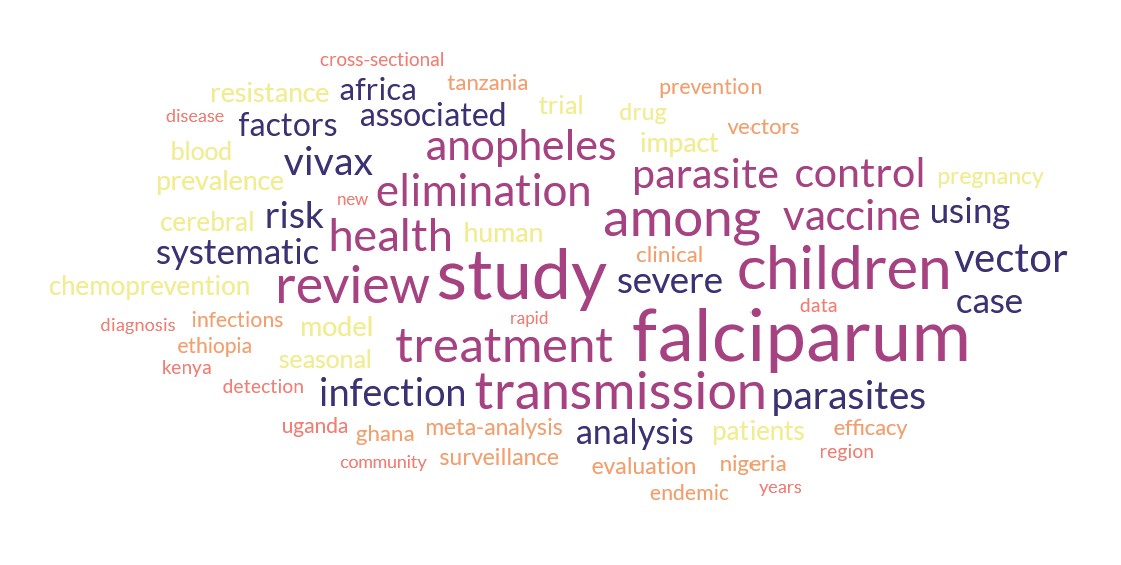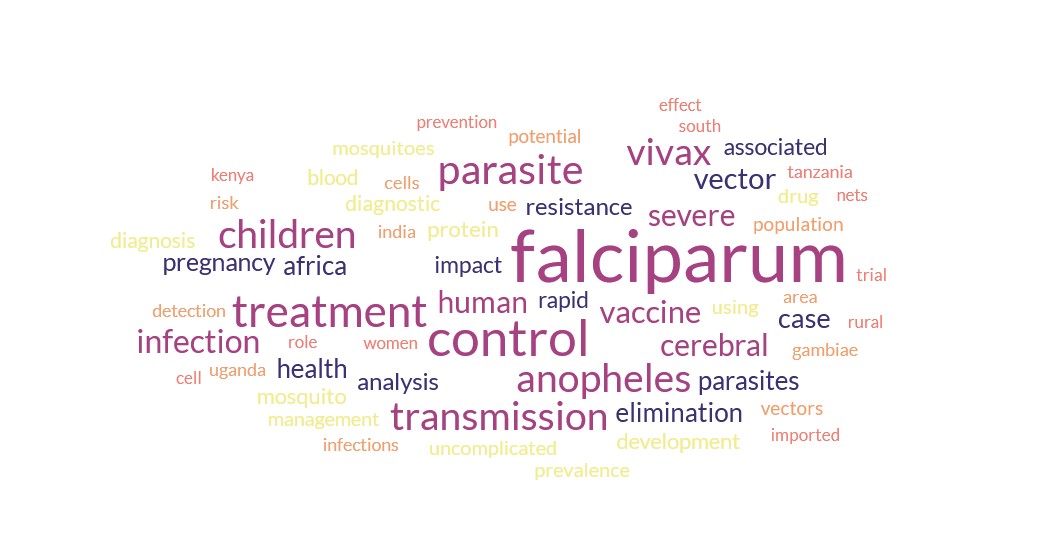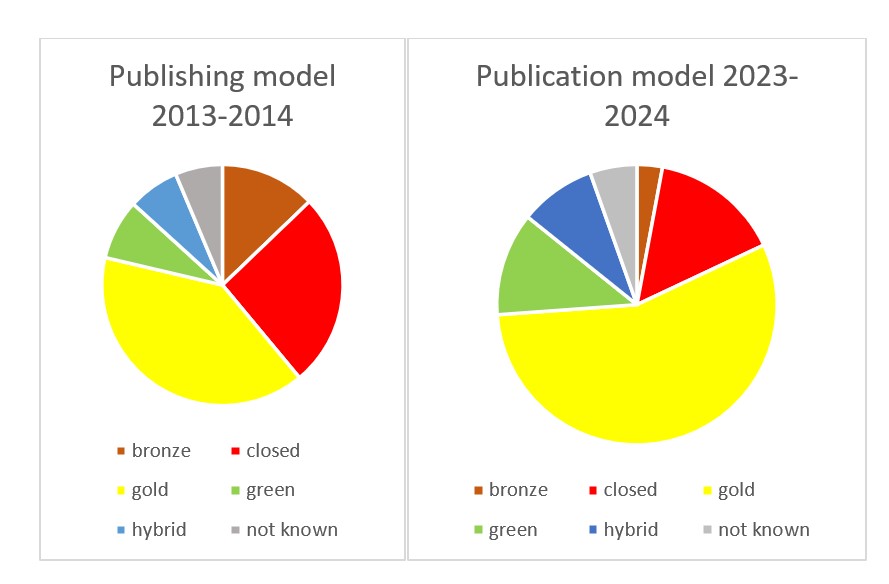
World Malaria Day (25th April) is a day where the global impact of malaria is highlighted, but the disease has a huge burden around the world and has been with us for thousands of years, so really it stands to reason that important discussions on malaria cannot be limited to just one day. But how is it discussed? What aspects of malaria are being discussed most? How can research about malaria garner more attention?
To explore the answers to these questions, I used the Altmetrics platform – a site that that tracks online mentions of articles. I searched for all articles (anything with a DOI) published from April 25th 2023 to April 20th 2024 with malaria in the title; I followed a similar process for the data from 2013/2014. The search returned 1805 articles for 2023/24 and 1622 articles for the 2013/2014 time period.
What recently published articles have been discussed the most over the course of the last 12 months? And how does this compare to 10 years ago?
The top 10 most talked about articles in the last year are:
Most ‘talked about’ articles in the top 10 are related to vector control, with a couple looking at vaccine usage. The papers on vector control use molecular methods compared, for instance, to ten years ago. The list below shows the most talked about papers that were published 10 years ago, which shows how far forward we have terms of vaccine development, (combatting) anti-malarial resistance, and improving vector control. It is also worth noting that climate change is still as much of an issue for malaria control as it was 10 years ago.
What aspects of malaria research is being discussed most frequently now?
Using the titles of the 1805 articles published in the last year, I created a word cloud showing the themes amongst all articles (and not just the top 10). I removed the words malaria, plasmodium and mosquito to avoid skewing the cloud.

Plasmodium falciparum is the most discussed malaria parasite, although Plasmodium vivax is mentioned significantly – this is true 10 years ago too (word cloud below). Whilst studies on treatment have been significant over the last 10 years, parasite elimination studies have been discussed much more frequently in the last year.

Does publishing models affect the level of discussion around an article?
Unsurprisingly, the most talked about articles were published under one of the Open Access models (gold, green, bronze) – this seems logical because basically breaking down the barriers to access makes it easier to talk about an article. Ten years ago, just over 50% of talked about articles were published Open Access, but in the last year alone this number increased to 75%! 
Graphs showing which publishing model the ‘talked about’ articles from 2013/14 and 2023/24 were published under
Where are these articles published?
Talked about articles were published across a wide variety of journals or sources – this is not surprising because malaria research can cross many fields and disciplines. However, the top ten sources of ‘talked about’ publications (in the last 12 months) are in the table below. Eight out of the ten are fully Open Access sources and the other two operate a hybrid model (enabling authors to choose open access publication for their articles).
| Journal | Number of ‘talked about’ articles |
| Malaria Journal | 242 |
| bioRxiv | 85 |
| PLOS ONE | 80 |
| medRxiv | 76 |
| Scientific Reports | 50 |
| The American Journal of Tropical Medicine and Hygiene | 43 |
| Parasites & Vectors | 36 |
| Research Square | 35 |
| Lancet Infectious Diseases | 28 |
| PLOS Global Public Health | 25 |
This has been only a brief but interesting exploration into the trends into malaria research discussions – quite honestly, I could easily spend months looking through the data. I hope this not only gives an idea into what is being discussed the most, but also shows that malaria research is more likely to be talked about if it is made more available. Even if an article is published in a closed access journal, the results can be highlighted using social media, blog sites (such as BugBitten) and most of these sites are freely available.
Most importantly, discussions around malaria can happen at any time of the year and you do not need to wait until 25th April.

Comments